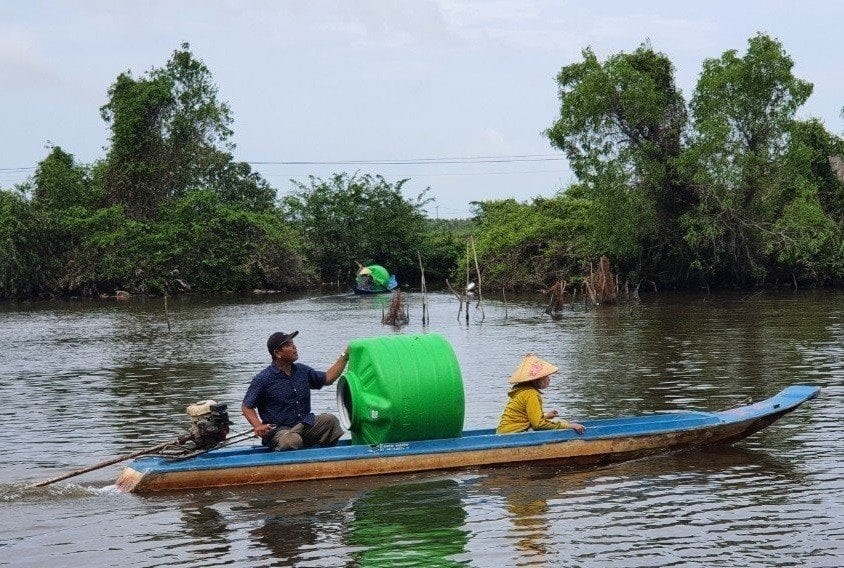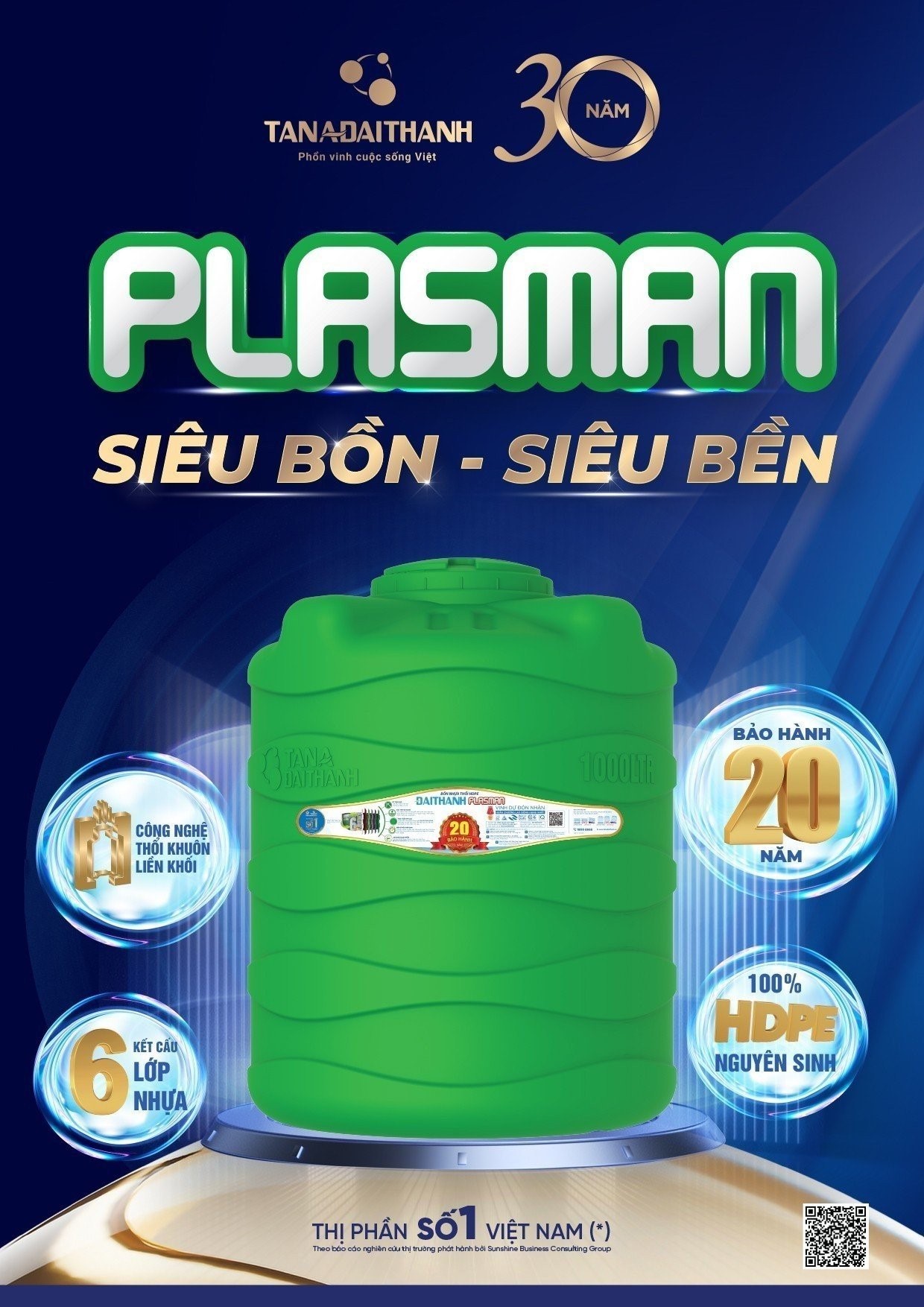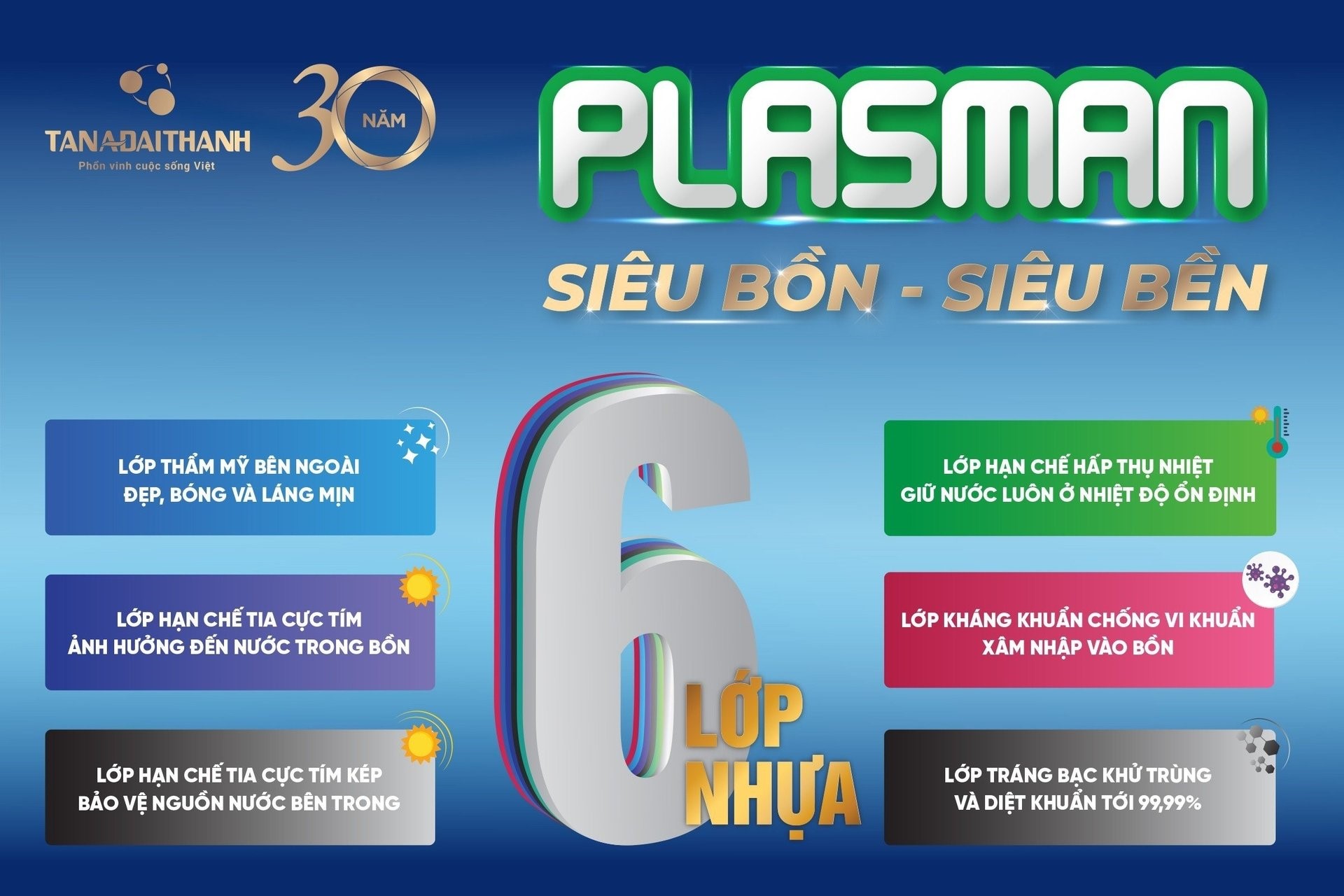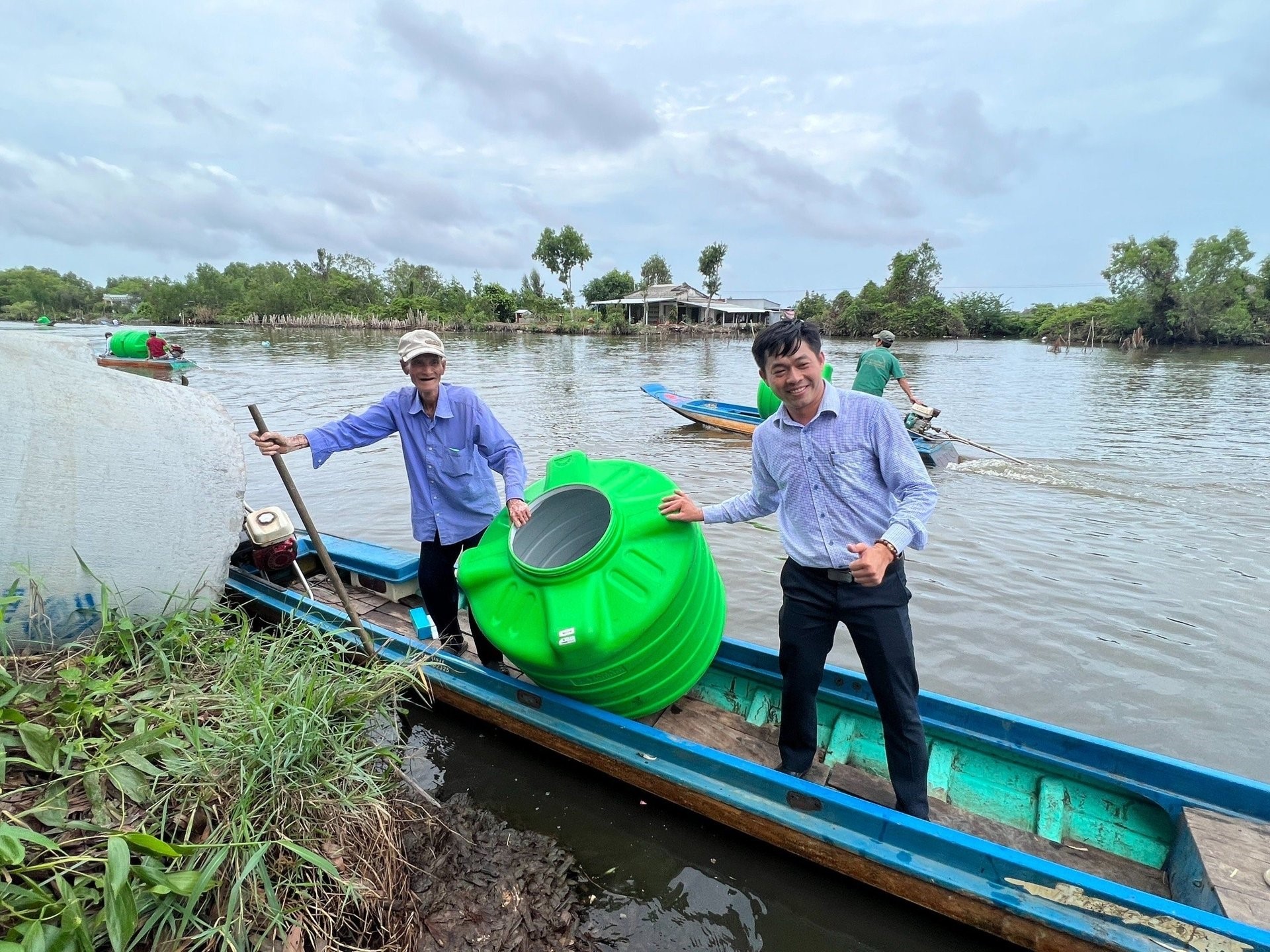May 21, 2025 | 07:56 GMT +7
May 21, 2025 | 07:56 GMT +7
Hotline: 0913.378.918
May 21, 2025 | 07:56 GMT +7
Hotline: 0913.378.918
Methods of "coexisting with" drought and salinity are used more flexibly than ever by people in the Mekong Delta Region.
Since 2017, when Resolution 120 of the Government on "Sustainable Development of the Mekong Delta, Adapting to Climate Change" was implemented, local people have proactively changed their production and living habits to adapt to the increasingly strong impacts of climate change in each dry season.
In agriculture, that adaptive thinking is demonstrated through three shifts, including changing the seasonal calendar to avoid drought and salinity; using varieties that adapt to drought and salinity; and boldly converting to crops and livestock that are more economically efficient than rice to meet market demand.

People use the Tan A Dai Thanh Plasman tank to store water, ensuring hygiene and a larger amount of stored rainwater.
The Mekong Delta has appeared in many good models, such as rice-shrimp in Bac Lieu and Soc Trang, a clean shrimp farming model under the forest canopy in Ca Mau, coconut trees adapting to climate change in Ben Tre, and adaptive livelihood models on coastal growing land in Tra Vinh, etc.
Not only in production, people's lives have also changed to “coexist with” drought and salinity. Observations and forecasts of drought and salinity levels help people proactively store clean water at the beginning of the rainy season.
Instead of the traditional method of storing rainwater in jars, cement tanks, etc., which have a small capacity and do not ensure hygiene, people have invested in plastic tanks with a capacity of 1-2 m3 of water, ensuring enough clean water for 4-5 months of the dry season.
One of the solutions that is assessed as effective, direct, and immediately implementable is to store water properly and use domestic water economically and effectively during peak periods of drought and salinity.
In the water tank market, Tan A Dai Thanh Plasman Super Tank is one of the new products, meeting the strict requirements for tank quality for the Mekong Delta region with sereve alum contamination and salinity.

Tan A Dai Thanh Plasman super tank has many outstanding advantages.
The Tan A Dai Thanh Plasman super tank is manufactured 100% from HDPE virgin plastic, the plastic that ranks at the top in terms of durability, impact resistance, corrosion resistance, and oxidation. The manufacturer has applied two of today’s most advanced technologies, including mixing and sticking lines used to create a tank body with a 6-layer plastic structure and an automatic integral blow molding system with a super-large dimension. Therefore, the Tan A Dai Thanh Plasman super tank is very durable, with anti-light penetration and no risk of leakage, so it is very safe to store domestic water.

Tan A Dai Thanh Plasman super tank is one of the pioneering plastic tank lines with 6 layers of super durable plastic.
The durability of the Tan A Dai Thanh Plasman super tank has been tested and certified since 2019, when it set a record for falling from a height of 26 meters without breaking. Up until now, no plastic tank product on the market has surpassed this record. Plasman super tanks are warranted for 20 years by Tan A Dai Thanh Group as a commitment to the exceptional durability and duration of this product.

Representatives of Tan A Dai Thanh Group donated Plasman super tanks to people in the Mekong Delta.
With outstanding and distinct advantages compared to conventional plastic tank products on the market, Plasman super tanks are gradually becoming popular and are preferred by people, especially people in islands, coastal areas, and areas contaminated with alum and salinity. Tan A Dai Thanh Group, with a high sense of responsibility to the community, has also organized many times to donate Plasman super tanks to families in difficult circumstances in provinces heavily affected by drought and salinity like Ben Tre, Soc Trang, Kien Giang, Ca Mau, Bac Lieu, Long An, and Tra Vinh.
Previously, within the framework of the program "Greening the West with Tan A Dai Thanh,” Tan A Dai Thanh Group, in collaboration with Vietnam Agriculture Newspaper, implemented the journey of giving water to people in eight Mekong Delta provinces affected by drought and salinity (Long An, Ben Tre, Vinh Long, Hau Giang, Kien Giang, Soc Trang, Bac Lieu, and Ca Mau). The program started in mid-May 2023 and ended in mid-June 2023. After one month of implementing the program, each province has been donated 30 Dai Thanh Plasman HDPE plastic water tanks with a value of VND 2.5 million/tank.
Translated by Huyen Vu Thu

(VAN) Japan's grant aid project contributes to capacity building, promoting organic agricultural production, and fostering sustainable community development in Dong Thap province.

(VAN) For years, the CRISPR-Cas9 genome technology has been reshaping genetic engineering, a precision tool to transform everything from agriculture to medicine.

(VAN) Vietnam aims to become a 'leader' in the region in the capacity and managing effectively soil health and crop nutrition.
![Reducing emissions from rice fields: [Part 1] Farming clean rice together](https://t.ex-cdn.com/nongnghiepmoitruong.vn/608w/files/news/2025/05/05/z6509661417740_a647202949c539012a959e841c03e1d3-nongnghiep-143611.jpg)
(VAN) Growing clean rice helps reduce environmental pollution while increasing income, allowing farmers to feel secure in production and remain committed to their fields for the long term.
/2025/05/19/5136-1-144800_230.jpg)
(VAN) The Nghe An Provincial People's Committee has just approved the list of beneficiaries eligible for revenue from the Emission Reductions Payment Agreement (ERPA) in the North Central region for the year 2025.

(VAN) 14 out of 35 domesticated elephants in Dak Lak province have had their living conditions improved, with 11 of them currently participating in the non-riding elephant tourism model.

(VAN) Muong Nhe Nature Reserve hopes that being upgraded to a national park will lay the foundation for forest protection efforts to be carried out in a systematic, modern, and sustainable manner.